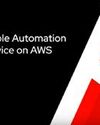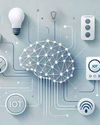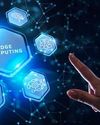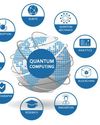
According to a recent report by Gartner, by 2025, artificial intelligence (AI) will be a top five investment priority for more than 30% of CIOs
globally. Some of the key trends that will shape the AI landscape in the next five years include:
AI engineering: A discipline that applies engineering best practices to AI development, deployment, and operation.
AI democratisation: The spread of AI tools and skills to a wider range of users, domains, and applications.
AI ethics: The study and practice of ensuring that AI systems are fair, accountable, transparent, and human-centric.
AI augmentation: The enhancement of human capabilities and performance by AI systems.
AI everywhere: The integration of AI into everyday devices, environments, and experiences.
Challenges in AI technology
Though there is a technology elevation in AI to machine learning, deep learning and generative AI, the rise of AI platforms and ecosystems also poses some risks and challenges, such as:
The concentration of power and data in a few large AI
platform providers, such as Google, Amazon, Microsoft, or Alibaba, which may stifle competition and innovation, and create dependencies and lock-ins for users and developers.
The lack of standards and governance for AI platforms and ecosystems, which may lead to inconsistencies, conflicts, and vulnerabilities in the quality, performance, and security of AI systems and services.
Denne historien er fra July 2024-utgaven av Open Source For You.
Start din 7-dagers gratis prøveperiode på Magzter GOLD for å få tilgang til tusenvis av utvalgte premiumhistorier og 9000+ magasiner og aviser.
Allerede abonnent ? Logg på
Denne historien er fra July 2024-utgaven av Open Source For You.
Start din 7-dagers gratis prøveperiode på Magzter GOLD for å få tilgang til tusenvis av utvalgte premiumhistorier og 9000+ magasiner og aviser.
Allerede abonnent? Logg på

Linux Foundation launches LF India to foster open source innovation and support in India
The Linux Foundation, a nonprofit organisation dedicated to driving innovation through open source, has announced the launch of LF India.

Red Hat launches Ansible Automation Platform Service on AWS
Red Hat, Inc., has announced the general availability of the Red Hat Ansible Automation Platform Service on Amazon Web Services (AWS) as a managed offering available through AWS Marketplace.

Fedora Asahi Remix 41 is now generally available
The Fedora and Asahi Linux projects have announced the general availability of Fedora Asahi Remix 41, the latest version of this distribution tailored for Apple Silicon Macs.

SageMath: A Second Glance at Cybersecurity
The eighth article in the series on SageMath explores a classical encryption scheme called the Rail Fence cipher and introduces the concept of symmetric-key encryption.

Building Cross-Platform Mobile Apps with lonic
Mobile apps are an intrinsic part of daily life today we use them to order food, groceries, taxis, and more. As these apps need to work across platforms, developers are focusing on cross-platform app development so that they code only once to create apps that function on multiple platforms. lonic is a framework that can help developers build apps faster than with native app development, while saving them time and money. Let’s learn how to install and deploy it.

Open Source AI Frameworks: Integrating AI with lot
Open source Al helps loT devices learn, adapt, and automate actions based on real-time data, improving convenience and security. Here’s an overview of six key open source Al frameworks that help integrate Al with loT, and the challenges they face.

Open Source loT: A Primer for Everyone
Open source IoT platforms promise to play a central role in shaping the future, making it possible for more people and businesses to benefit from smarter, more efficient solutions. We look at a brief history of this tech and explore emerging trends.

Using Open Source and Blockchain to Build Decentralised loT Networks
Explore how blockchain is being integrated with loT to create decentralised networks. Find out how leading open source projects like IOTA and Streamr use blockchain to ensure data integrity, security, and privacy in loT ecosystems.

Internet of Things: Running Language Models on Edge Devices
Let’s delve into the technical aspects, challenges, and benefits of deploying language models on edge/loT devices.

How Open Source is Making Quantum Computing Accessible to Everyone
Open source initiatives are breaking down the barriers to quantum computing, making it accessible to everyone. Explore what quantum computing is, the challenges of traditional adoption, how open source platforms are democratising the technology, and how you can get started in this exciting domain.